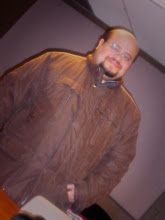Sudan’s Umar Al-Bashir Wins Presidential Election (Correct)April 29, 2010, 1:41 AM EDT
More From Businessweek
Sudan Seeks Government Free of ‘Bickering’ by June, Aide SaysCarter Sees Sudan’s Flawed Vote as Key to Southern ReferendumCarter Says Sudan Vote Is Key to Southern Referendum (Update1)Sudan’s Umar Al-Bashir Wins Presidential Election (Update4)Sudan Starts Ballot Count as Bashir Heads for Likely VictoryStory Tools
e-mail this storyprint this storydigg thissave to del.icio.usadd to Business Exchange(Corrects spelling of first name of analyst in third paragraph of story published on April 26.)
By Maram Mazen and Alan Boswell
April 26 (Bloomberg) -- Sudan’s first multiparty vote in 24 years, marred by opposition boycotts and allegations of fraud, returned President Umar al-Bashir and the leader of Southern Sudan, Salva Kiir, to office.
Bashir won the national presidency with 68 percent of the vote, while Kiir took 93 percent in the regional election, the head of the National Elections Commission, Abel Alier, told reporters today in the capital, Khartoum. Bashir, 66, came to power in a 1989 coup and has been charged by the International Criminal Court with war crimes in the western region of Darfur.
“It was always just a matter of what kind of margin he wins by,” Sara Hassan, an analyst with IHS Global Insight, said today by phone from London before the results were announced. “The opposition was divided and it hasn’t been a totally fair campaign.”
The April 11-15 vote was part of the Comprehensive Peace Agreement in 2005 that ended a civil war between Bashir’s government and Kiir’s Sudan People’s Liberation Movement. The next step in the accord is to allow the south to vote in a referendum, now set for January, to decide whether to become an independent nation.
“These elections have given the Sudanese people in general and Southern Sudanese in particular a golden opportunity to decide by themselves who to run their affairs and prepare them to determine their future through the referendum,” Kiir told reporters in Juba, the regional capital, today.
‘Total Freedom’
Bashir’s National Congress Party will work on convincing southern Sudanese people to vote for unity in the 2011 referendum, the president told a rally of his supporters at celebrations at the party’s headquarters in Khartoum. It will respect and support their decision, even if they choose secession, he said.
“We will work so that the people in southern Sudan express their opinion in total freedom, either for separation or unity,” Bashir said. “Then we will respect and commit to the southern people’s decision and support it also.”
As many as 2 million people died in the 21-year war between the Muslim north and the south, where Christianity and traditional religion dominate.
Bashir’s victory was aided by the withdrawal of his two most important challengers, former Prime Minister Sadig al- Mahdi, who heads the Umma party, and Yasser Arman, the SPLM candidate for the national presidency. The ballot papers were printed before their boycott decision.
Arman captured 21.7 percent of the vote, Alier said, while al-Mahdi won less than 1 percent.
Standards Not Met
Observers from the Atlanta-based Carter Center and the European Union said the elections failed to meet international standards. The late arrival of ballots, some at the wrong polling stations, and voter lists with missing names caused delays across Africa’s biggest country.
“Our concerns with these elections go beyond technical irregularities,” Georgette Gagnon, the Africa director at New York-based Human Rights Watch, said today in an e-mailed statement. “Political oppression and human rights violations undermined the freedom and fairness of the vote all over Sudan.”
Opposition parties in both northern and southern Sudan accused the ruling parties of electoral abuses.
‘Hijacking of Sudan’
“These are rigged elections,” Mariam al-Mahdi, the spokeswoman for the Umma party, said today from Khartoum. “It is a new hijacking of Sudan, by systematic rigging by the state.”
Kiir will remain as a vice president in Bashir’s administration until the referendum. The SPLM’s northern sector will join the opposition in north Sudan, party Secretary-General Pagan Amum said April 22 in an interview in Juba, and may eventually emerge as a separate party from its southern section.
Bashir’s government and the SPLM must still negotiate issues such as final north-south borders, responsibilities for paying Sudan’s foreign debt, and how to share oil revenue if Southern Sudan secedes.
Sudan is sub-Saharan Africa’s third-largest producer of crude oil, pumping about 480,000 barrels a day, according to the BP Statistical Review of World Energy. Most of the fields are in the south.
Under the peace agreement, the two sides split the proceeds from oil produced in Southern Sudan. Currently oil produced in the region is exported north through Port Sudan on the Red Sea.
Ethnic Clashes
The authorities in Southern Sudan also face intensified violence in the region.
A series of ethnic clashes between April 13 and April 21 may have killed as many as 48 people, according to the United Nations.
Clashes in Southern Sudan have killed 400 people and forced 60,000 to flee their homes this year, while as many as 2,500 died and 350,000 were displaced last year, according to the UN.
Bashir’s government is trying to negotiate a settlement with rebel groups in Darfur, where as many as 300,000 people have died, mainly due to illness and starvation, in a seven- year-old conflict. The government puts the death toll at about 10,000.
The two main armed rebel groups, the faction of the Sudan Liberation Movement led Abdel Wahid Nur, and the Justice and Equality Movement rejected the elections and its results.
Now Bashir “is negotiating from a place of strength,” Hassan said, “and obviously this would cause some frustration.”
--With assistance from Alan Boswell in Juba. Editors: Karl Maier,
To contact the reporters on this story: Maram Mazen in Khartoum via Cairo at mmazen@bloomberg.net; Alan Boswell in Juba at aboswell2@bloomberg.net.
To contact the editors responsible for this story: Peter Hirschberg at phirschberg@bloomberg.net.



















































